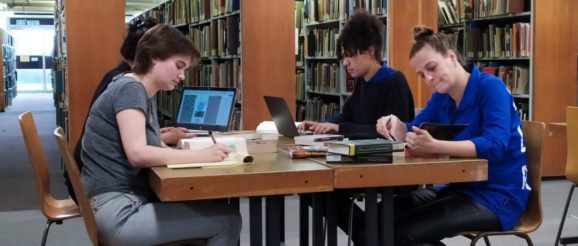Haifa University Launches Innovation Hub For Holocaust Remembrance

Ahead of Holocaust Remembrance Day, which begins this evening in Israel, the University of Haifa announced the launch of the Weiss-Livnat Innovation Hub for Holocaust Education and Commemoration.
The new one-year graduate program fosters a culture of innovation in Holocaust education and encourages students to develop an entrepreneurial approach to personal projects that honor the memory of the Holocaust’s victims, the university said in a statement. The university also aims to provide ” a new take” on teaching the Holocaust to the next generation.
“A large number of our students go on to do museum work, research and teach, but we are also aware of the need to stimulate innovation in this field, encourage the development of technology and create new opportunities for our graduates. As such, the University decided to try something new: infusing Holocaust commemoration with a more entrepreneurial spirit,” Dr. Yael Granot-Bein, director of the Weiss-Livnat International MA Program for Holocaust Studies, explained.
The highly selective program, which brings together students from all over the world, has accepted seven students from Australia, Germany, Holland and England. Most are former graduates of the Weiss-Livnat International MA Program in Holocaust Studies, according to the university.
The program said students in the hub have used a five-step plan, similar to the one used by entrepreneurs to understand their consumer base as they are developing their products, to develop projects. The students also relied on market research and focus groups to ensure there is a demand for their ideas.
Some recent student project ideas include a virtual reality experience that tells the story of Jewish children in Holland during the Holocaust; an augmented reality smart-phone app that features little-known Jewish landmarks that no longer exist in Berlin to recreate the Jewish life that existed there before World War II; a culinary tour of Jewish Melbourne, focusing bakeries established by Jewish refugees and Holocaust survivors in two historically Jewish neighborhoods; and a learning community about the Holocaust connected via a podcast and educational workshops about the Holocaust for young Europeans.
“The hub is dedicated to nurturing young people from different countries and cultures who have an idea of how to teach or commemorate the Holocaust. The Hub brought these passionate and creative people together and provided them with a supportive environment in which they worked with mentors and professionals who helped them turn their vision into a reality,” said Dr. Granot-Bein
